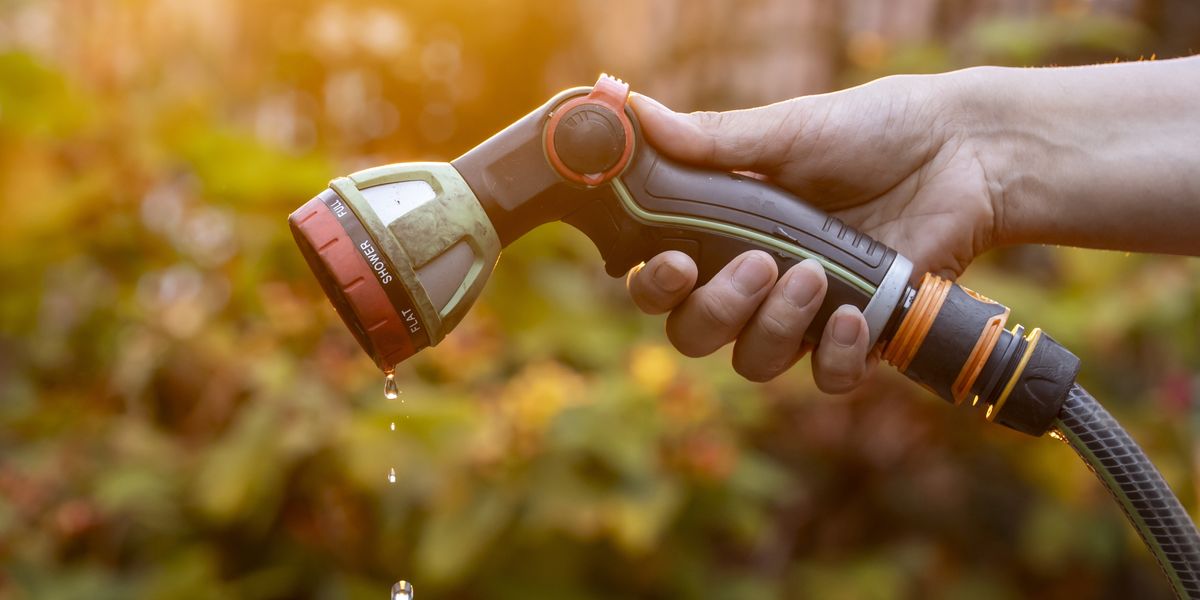



England is now suffering from "nationally significant" water shortfalls with five areas in drought as hosepipe bans remain in force across the country.
Six further regions are experiencing prolonged dry weather after the fifth warmest July on record.
Many river flows and reservoir levels continued to recede compared to June, despite many places seeing heavy rain or showers last month.
The dry weather has returned in August, with the fourth heatwave of the summer set to see temperatures soar once more, putting extra pressure on overstretched water supplies.
An amber heat health alert has been put in place covering many parts of the country this week including the East and West Midlands, the South East, London and the East of England.
The alert, issued by the UK Health Security Agency (UKHSA) and the Met Office, came into effect at 9am today and will remain in place until 6pm on Wednesday, August 13.
A lesser, yellow alert is in place in the South West, Yorkshire and the Humber, North West and North East regions.
Most parts of England are expected to see temperatures exceed 30C today, while it could reach 34C in some southern areas.

Temperatures could reach 34°C in some parts of England today
|PA
Reservoir levels fell two per cent last week and are now 67.7 per cent full on average across England, compared to the 80.5 per cent normally seen for the first week of August, the Environment Agency (EA) said.
The National Drought Group - which includes the Met Office, regulators, government, water companies and other organisations - has met to discuss what people can do to help as many areas remain in drought status.
The group praised the public for following hosepipe bans, which are in place for all Yorkshire Water customers and parts of the regions served by Thames Water, South East Water and Southern Water.
South East Water introduced its temporary hosepipe ban in the lead up to the latest heat wave amid a record-level demand for drinking water in Kent and Sussex since May.

Several water companies have enforced hosepipe bans
|PA
"We will continue to monitor the situation and will lift the restrictions when we’re satisfied that both customer demand and water supply levels are restored to a point where they are not breaching our Drought plan," the water company has stated.
Yorkshire Water has reported a 10 per cent reduction in domestic demand following its hosepipe ban, a saving of up to 80 million litres a day or 32 Olympic-sized swimming pools.
The EA’s director of water and National Drought Group chair, Helen Wakeham, said: “The current situation is nationally significant and we are calling on everyone to play their part and help reduce the pressure on our water environment.
“Water companies must continue to quickly fix leaks and lead the way in saving water.
 Booth Wood Reservoir in West Yorkshire is among those at a low level | PA
Booth Wood Reservoir in West Yorkshire is among those at a low level | PA
“We know the challenges farmers are facing and will continue to work with them, other land users and businesses to ensure everyone acts sustainably.
“We are grateful to the public for following the restrictions, where in place, to conserve water in these dry conditions.
“Simple, everyday choices – such as turning off a tap or deleting old emails – also really helps the collective effort to reduce demand and help preserve the health of our rivers and wildlife.”
National Farmers’ Union vice-president Rachel Hallos said farmers and growers continued to face extremely dry conditions.
“Some farms are reporting significant drop in yields which is financially devastating for the farm business and could have impacts for the UK’s overall harvest," she said.
Hallos said investment in water infrastructure and a more effective planning system was needed.
Despite wet conditions for many in July, rainfall was 89 per cent of the long-term average for the month across England, making it the sixth consecutive month of below-average rainfall, the EA said.

Farmers continue to face dry conditions
|PA
And there appears to be no or little let-up in the dry conditions for some areas in the coming days, according to the Met Office.
Dr Will Lang, chief meteorologist, said: “This week is starting off warmer than of late across England and Wales, with temperatures getting towards the mid-30s Celsius for some in the south.
“While conditions remain mostly settled across the south, the picture is more unsettled further north-west, with rain or showers at times.
“As we move into the second half of August there are indications of high pressure building and therefore largely settled conditions overall.
“Although dry weather is more likely, rain, showers or thunderstorms cannot be ruled out.”
With rising temperatures this week, fire and rescue services are likely to face an increase in incidents but funding cuts have left them without enough crews and resources, the Fire Brigade Union (FBU) said.
FBU general secretary Steve Wright said wildfires were “intensive and dangerous incidents” which required large numbers of firefighters and specialist equipment and called on more Government investment.
